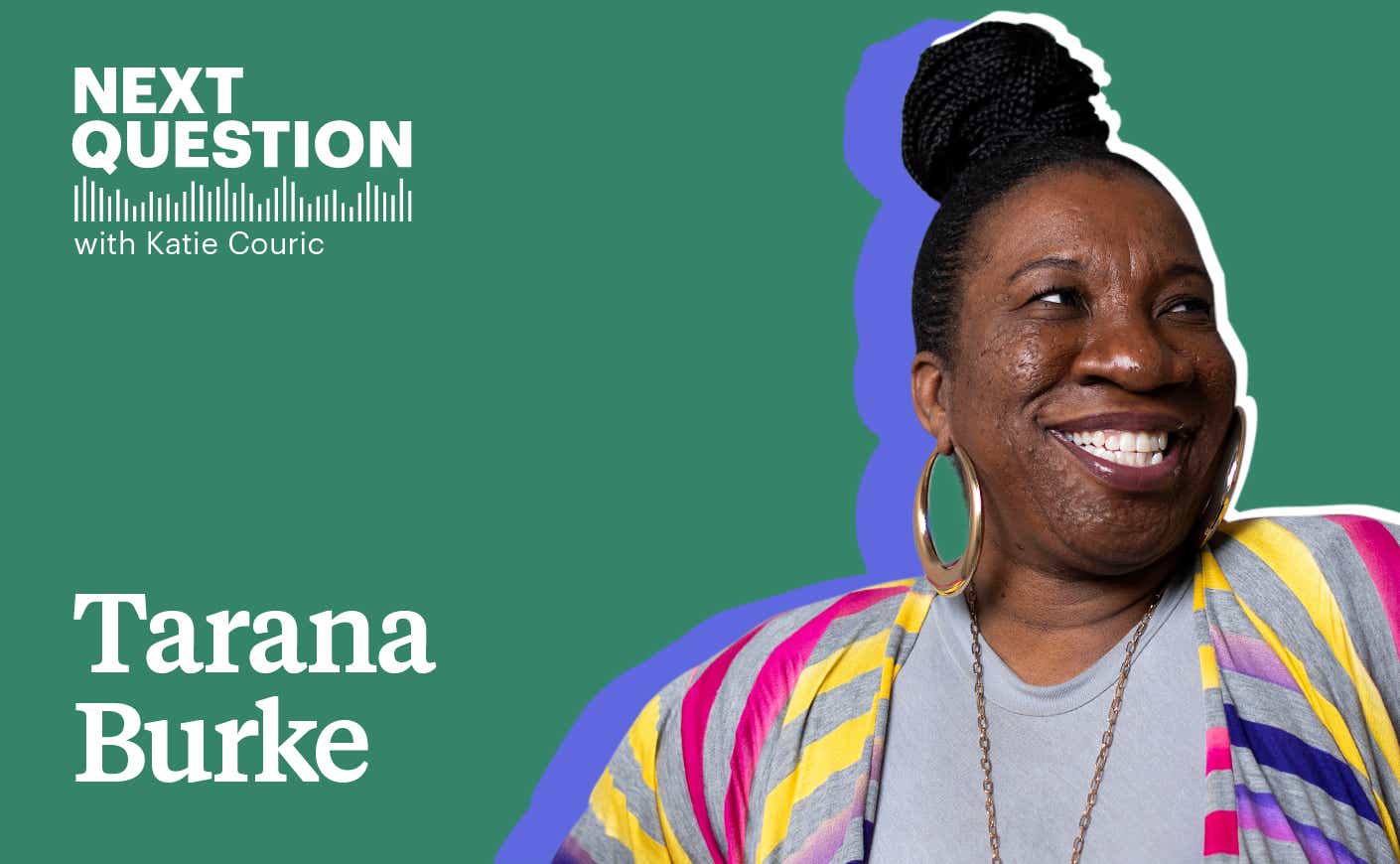The activist at the center of the Me Too movement is finally telling her whole story. In a new episode of Next Question with Katie Couric, Tarana Burke discusses her new memoir Unbound, surviving child sexual abuse, how that shaped her activism and ultimately helped launch one of the most powerful social movements of our era.
Burke was just 7 years old when she was abused — and for years afterward felt ashamed because of it, she explained to Katie on the Going There tour (their conversation was so amazing, we just had to turn it into a bonus podcast episode).
“I felt complicit in my own abuse because what I was told is that good girls don’t let people touch their private parts and good girls don’t go into dark corners with grown boys,” she said. “I’d heard all these rules but no adult had ever said to me, 'if one of these rules is broken, it’s not your fault.' So I spent years feeling complicit.”
It wasn’t until she ran into the perpetrator again, some 30 years later, at a Father's Day gathering in their old neighborhood in the Bronx, that the shame she had felt shifted into anger.
“Finally the anger came, and interestingly enough, the anger came because he didn’t recognize me,” Burke said. “This is a person who occupied so much of my brain for 30-plus years, and he looked right through me as if he didn’t recognize me at all. And I thought, ‘How do you get to have a life? How dare you get to have a life?’ And I have to live with this thing.”
Burke left the gathering in tears with her mother, who in the back of a taxi helped reframe the encounter in a way that served as a turning point for Burke. “My mother said something to the effect of, ‘He can’t recognize you because you turned out to be a smart, beautiful woman,’” Burke said. “I thought, ‘No, he didn’t win. I won.’”
This concept of “triumph after the trauma” is one that Burke tried to instill in the young victims of sexual violence she worked with early in her career, she says. It also served as a theme for the Me Too movement, which surged in 2017 as A-list actresses came forward to accuse Harvey Weinstein of sexual assault — and overshadowed Burke’s years of activism.
But Burke doesn’t begrudge the fact that as the movement began to take off, media outlets focused on their harrowing stories of abuse.
“Really, the Me Too movement is about 12 million people responding to a hashtag in 24 hours,” Burke said. “I don’t want this to be about women fighting women, right? Because it’s more so about us fighting a system that continues to perpetuate the same stories and stereotypes and ideas. That’s what it’s about. And I fight that every day.”
For more, including #MeToo’s surprising link to the civil rights movement and what it owes to the activists of Selma, Alabama, listen to this full bonus episode of Next Question with Katie Couric.








